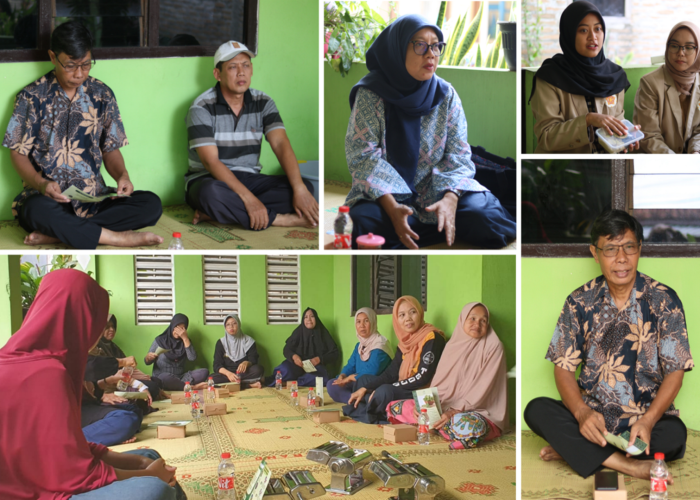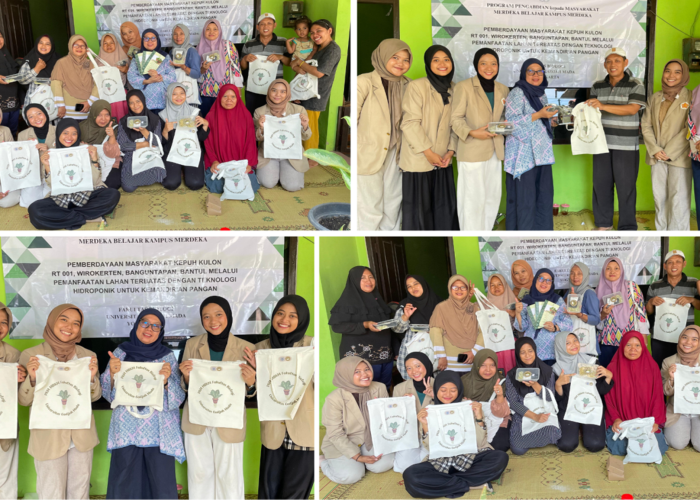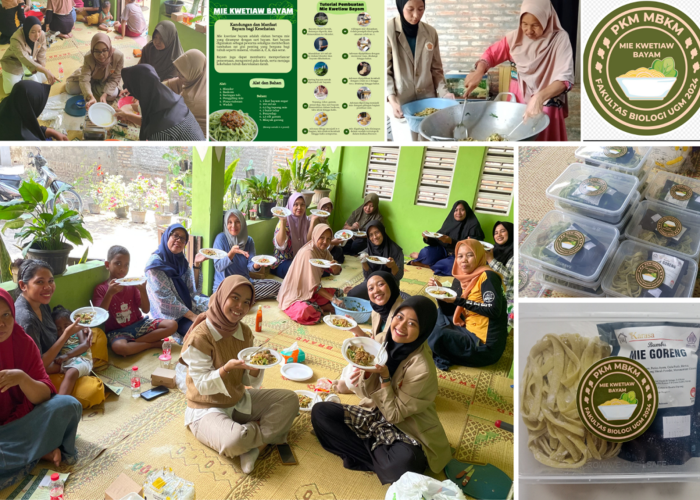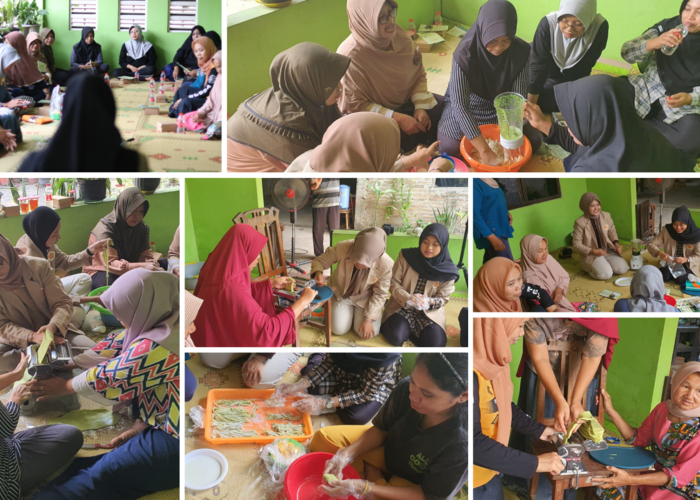Community Service Team – Independent Learning Independent Campus (PkM-MBKM) Faculty of Biology UGM 2024, chaired by Prof. Rina Sri Kasiamdari, S.Si., Ph.D. has successfully carried out a series of Community Service activities at Kepuh Kulon RT 001, Wirokerten, Banguntapan, Bantul, the second stage. The team involved four students are Nurindah Musarofah, Hasna Nabila Kusumastuti, Cindy Adisty Rudi Ananda Putri, and Amalia Rizky Fauzi carrying out a sustainable program for hydroponic cultivation technology by processing spinach into spinach kwetiau noodles for food diversification. This program is intended to provide information and guidance to the community for processing hydroponic cultivation products and food diversification. Food diversification aims to prevent constant consumption patterns of just one type of food. This semester, PkM-MBKM was held on Sunday, 27 October 2024 at 09.00 – 13.00 WIB at the house of the Head of RT 001 Kepuh Kulon, Mr. Zamzuri. This activity was greeted with enthusiasm by the residents of RT 001 Kepuh Kulon, attended by 18 women and Mr. Sunartono as Head of the Kepuh Kulon Village Hamlet. As an opening, Mr. Sunartono delivered a speech regarding the importance of applying the knowledge that has been obtained because the work of knowledge will bring benefits to society. He also hopes that there will be community initiatives to continue this program without fear of the risk and failure so that the people of RT 001 Kepuh Kulon can become productive individuals. Supporting that, Prof. Rina also said that this program was held to help increase community food independence through hydroponic food diversification. She emphasized the importance of togetherness between residents to realize the implementation of this program in the community. This activity is expected to support the local economy by introducing and improving skills in hydroponic technology and independent food production which can also open up new business opportunities.
This program takes the form of socialization and practice in making hydroponic product in the form of “Mi kwetiau bayam” or spinach kwetiau noodles. Socialization is carried out by providing information regarding the names of hydroponic processed products, what types of plants are used, the contents and benefits of spinach plants, tools and materials as well as procedures for making them. Noodles are a type of food that is often consumed by people. However, noodles generally do not contain enough nutrition. Therefore, we innovated to add spinach as a nutritional enhancer and food coloring. Spinach is known to contain several minerals, fiber, and vitamins A, C, and K which are good for facilitating digestion, controlling blood pressure, and maintaining immunity.
The practice of making hydroponic products is carried out by forming groups to provide effectiveness of the activity. The peoples were divided into two groups of 6-8 peoples, accompanied by two students to carry out independent practice. The practice began with a brief explanation of the tools and materials provided, then continues with the practice of making dough according to the recipe, and making the dough into kwetiau noodles using a noodle mill. The raw noodles are ready, processed into fried spinach kwetiau noodles by the participant and the final result is enjoyed together. It is hoped that the residents’ enthusiasm and skills in carrying out the practice will be a boost for applicants for this program. Towards the end of the activity, a mini quiz was held and residents who successfully answered were given doorprizes. The PkM-MBKM team also gave one pack of noodles along with ready-made spices and merchandise to residents so they could be used to apply it at home. Before the event closed, a symbolic memento was given from the PKM-MBKM team represented by Prof. Rina to RT 001 Kepuh Kulon presented by Mr. Zamzuri, followed by a group photo session. It is hoped that the PkM-MBKM program can provide new information and knowledge in processing hydroponic cultivation results into products that support community food diversification. This activity supports SDG 2: Zero Hunger, SDG 3: Healthy and Prosperous Lives, and SDG 12: Responsible Consumption and Production.
Tagline:
#SDG 2: Zero Hunger
#SDG 3: Healthy and Prosperous Lives
#SDG 12: Responsible Consumption and Production





